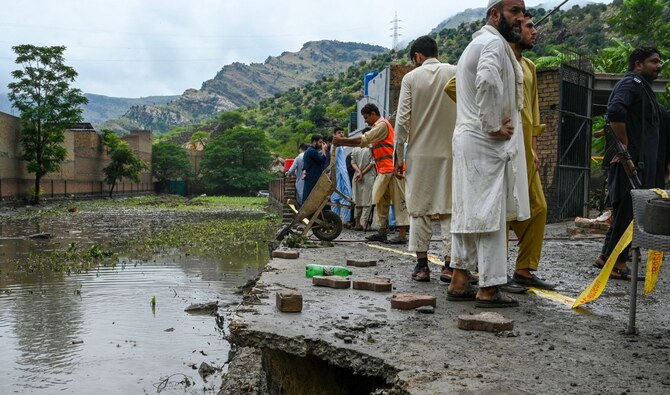ISLAMABAD: The Asian Development Bank (ADB) has approved a grant of $320 million to rehabilitate roads destroyed by recent floods in Pakistan’s northwestern Khyber Pakhtunkhwa province, state-run media reported on Wednesday.
Heavy monsoon rains in Pakistan, especially in its KP and Punjab provinces, killed nearly 350 people and injured hundreds of others from June to September. Thousands of homes were damaged and destroyed in flash floods, landslides and other rain-related incidents.
The regional development bank has committed over $52 billion to Pakistan, one of its founding members, since 1966 in public and private sector loans, grants, and other forms of financing to promote inclusive economic growth in the country.
“ADB has approved 320 million dollars for rehabilitation of roads in Khyber Pakhtunkhwa province,” state broadcaster Radio Pakistan reported on Wednesday.
KP Rural Roads Development Project will upgrade around 900 kilometers of “flood-affected rural roads” with the help of these funds in the province, the state media said, adding that the Special Investment Facilitation Council (SIFC) will facilitate the process.
Effective measures would also be taken to design and build sustainable roads that remain safe from climate change effects, Radio Pakistan said.
In December 2023, the ADB approved three projects totaling $658.8 million to improve Pakistan’s domestic resource mobilization, rehabilitate schools damaged by the devastating August 2022 floods, and enhance agricultural productivity to improve food security.
The ADB has been actively involved in various projects in KP. One notable project is the KP Cities Improvement Project, which aims to enhance the livability of five major cities, namely Abbottabad, Kohat, Mardan, Mingora, and Peshawar.
The project aims to do this by “expanding physical investments in urban water, sewerage, solid waste disposal, and green infrastructure, providing institutional support to improve service delivery and the performance of municipal companies and promoting gender-friendly municipal services through empowerment and capacity development.”






















